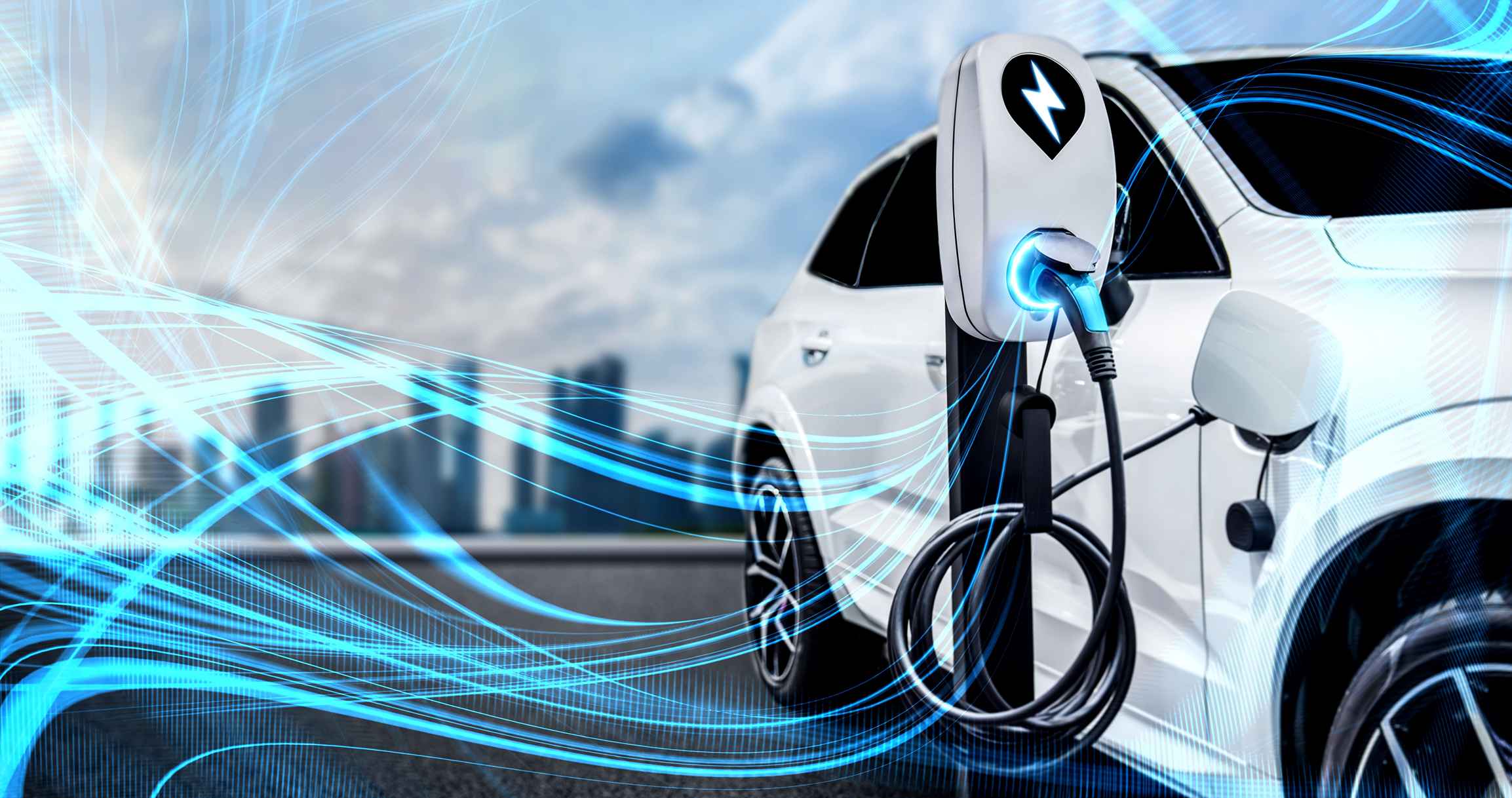BYD's Rise: Ford's Decline And The Future Of EVs In Brazil

Table of Contents
BYD's market share in Brazil has exploded in recent years, a dramatic shift that underscores the rapidly changing landscape of the Brazilian automotive industry. This surge in popularity, juxtaposed against Ford's declining sales, paints a compelling picture of the future of electric vehicles (EVs) in Brazil. BYD's rise isn't just a company success story; it's a reflection of a growing consumer preference for EVs and a potential harbinger of challenges for established automakers like Ford. This article will examine BYD's strategic triumphs, Ford's struggles, and what these developments signify for the future of the Brazilian EV market.
BYD's Strategic Success in the Brazilian EV Market
H3: Aggressive Pricing and Product Strategy: BYD's success in Brazil is largely attributed to its savvy approach to pricing and product offerings. The company has strategically positioned its models to compete aggressively in the price-sensitive Brazilian market.
- Competitive Pricing: BYD offers EVs at price points that are significantly more competitive than many established brands. This accessibility is a major draw for Brazilian consumers.
- Feature-Rich Models: Models like the BYD Tang and BYD Han offer a compelling blend of features, performance, and technology, often surpassing expectations for vehicles in their price bracket.
- Blade Battery Technology: BYD’s proprietary Blade Battery technology provides superior range and safety, addressing key consumer concerns about EV performance and longevity. This innovation has become a significant selling point.
- Effective Marketing and Distribution: BYD has invested heavily in establishing a robust distribution network across Brazil, ensuring accessibility for potential buyers. Their marketing campaigns have effectively targeted the burgeoning Brazilian EV market.
H3: Government Incentives and Infrastructure: The Brazilian government's supportive policies towards EV adoption have undeniably boosted BYD's success.
- Government Incentives: Tax breaks and subsidies for EVs have made them more affordable for Brazilian consumers. While specific details change over time, it is clear that these policies heavily favor early EV adoption.
- Charging Infrastructure Development: Although still under development, the growth of charging infrastructure across Brazil is facilitating wider EV acceptance, which has directly benefited BYD.
- Import Tariffs: Favorable import policies or reduced tariffs for components may have played a role in lowering BYD's production costs.
H3: Localized Production and Supply Chains: BYD's commitment to localized production within Brazil has provided several competitive advantages.
- Reduced Import Costs: Establishing manufacturing facilities within the country drastically reduces import costs and lead times.
- Local Partnerships: Collaborations with local suppliers and component manufacturers further enhance efficiency and reduce reliance on foreign markets.
- Economic Benefits: Local production creates jobs and stimulates the Brazilian economy, fostering positive public perception.
Ford's Challenges and Market Position in Brazil
H3: Declining Sales and Market Share: Ford's presence in the Brazilian automotive market has significantly diminished in recent years. Sales figures clearly demonstrate a downward trend, a stark contrast to BYD's growth.
- Increased Competition: The intensifying competition in the Brazilian auto market, coupled with the rise of new players, has put considerable pressure on Ford.
- Lack of EV Focus: Ford's relatively limited presence in the EV segment in Brazil has left them lagging behind competitors like BYD, who have aggressively embraced the electric future.
- Shifting Consumer Preferences: Ford hasn't adequately adapted to the evolving preferences of Brazilian consumers who are increasingly drawn to fuel-efficient and environmentally friendly vehicles, including EVs.
H3: Failure to Adapt to the Changing Market: Ford's strategic decisions (or lack thereof) have contributed significantly to their decline.
- Slow Adoption of EVs: A sluggish response to the growing demand for electric vehicles has cost Ford valuable market share.
- Marketing and Branding: Ford's marketing efforts haven't effectively resonated with the evolving demographics and preferences of Brazilian consumers.
- Product Portfolio: The overall product portfolio may lack the appeal needed to compete against newer brands offering advanced technology and eco-friendly options.
H3: Economic and Political Factors: Macroeconomic factors within Brazil have also impacted Ford's performance.
- Economic Instability: Periods of economic uncertainty and fluctuations have negatively affected consumer purchasing power and vehicle sales across the board.
- Regulatory Hurdles: Any regulatory challenges or changes in import/export policies would also have potentially influenced Ford's market position.
The Future of Electric Vehicles in Brazil
H3: Growth Projections and Market Trends: The Brazilian EV market is poised for significant growth in the coming years.
- Government Support: Continued government support and investment in charging infrastructure will be crucial for further growth.
- Technological Advancements: Advances in battery technology, charging speeds, and vehicle range will continue driving demand for EVs.
- Increasing Consumer Awareness: Growing consumer awareness of environmental concerns and the benefits of EVs is also contributing to market expansion.
H3: Competition and Innovation: The Brazilian EV market is becoming increasingly competitive, with new players entering the market.
- New Entrants: Expect to see more EV manufacturers enter the Brazilian market, intensifying competition and driving innovation.
- Technological Innovation: Continuous improvements in EV technology will shape the future of the market, driving down prices and improving performance.
H3: Infrastructure Development and Government Policies: Sustained investment in charging infrastructure and supportive government policies are crucial for the long-term success of EVs in Brazil.
- Charging Infrastructure: Expansion of public charging networks is vital to ease consumer range anxiety and encourage wider EV adoption.
- Government Regulations: Clear, consistent government regulations and policies will provide a stable and predictable environment for manufacturers and consumers.
Conclusion: Navigating the EV Revolution in Brazil
BYD's remarkable rise in Brazil starkly contrasts with Ford's struggles, highlighting the transformative impact of EVs on the automotive landscape. BYD's aggressive strategy, leveraging competitive pricing, innovative technology, and government support, has secured its position as a market leader. Conversely, Ford's failure to adapt to changing consumer preferences and the rise of EVs has resulted in declining sales. The future of EVs in Brazil is bright, driven by technological advancements, government initiatives, and growing consumer demand. However, continued investment in infrastructure and consistent policy support will be vital to fully unlock the potential of the Brazilian EV market. To learn more about BYD's rise, Ford's decline, and the exciting future of electric vehicles (EVs) in Brazil, further research using keywords like "BYD Brazil," "Electric Vehicles Brazil," "Ford Brazil sales," and "Brazilian EV market" is highly recommended.

Featured Posts
-
 Will Trumps Executive Order Lower Drug Costs An Analysis
May 13, 2025
Will Trumps Executive Order Lower Drug Costs An Analysis
May 13, 2025 -
 The Legacy Of Lara Croft Tomb Raider The Cradle Of Life
May 13, 2025
The Legacy Of Lara Croft Tomb Raider The Cradle Of Life
May 13, 2025 -
 Reviewing The Climax The Hobbit The Battle Of The Five Armies
May 13, 2025
Reviewing The Climax The Hobbit The Battle Of The Five Armies
May 13, 2025 -
 Von Braunschweig Nach Hannover Die Geschichte Von Jannes Horn
May 13, 2025
Von Braunschweig Nach Hannover Die Geschichte Von Jannes Horn
May 13, 2025 -
 Celebrities Gather For Eva Longorias 50th Birthday Celebration In Miami
May 13, 2025
Celebrities Gather For Eva Longorias 50th Birthday Celebration In Miami
May 13, 2025
